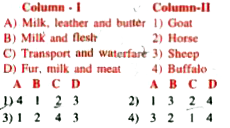In which ways are bacteria useful to our environment and us?
Step-by-Step Solution:
1. Introduction to Bacteria:
- Bacteria are prokaryotic organisms, meaning they lack a well-defined nucleus. Their genetic material is not enclosed within a nuclear envelope and is free-floating in the cytoplasm.
2. Role in the Food Chain:
- Bacteria play a crucial role in the food chain as decomposers. They occupy the last trophic level and are responsible for breaking down dead and decaying matter.
3. Nutrient Recycling:
- By decomposing complex organic matter, bacteria convert it into simpler substances such as carbon, nitrogen, oxygen, phosphorus, and potassium. These elements are then returned to the soil.
4. Support for Plant Life:
- The nutrients released back into the soil are utilized by plants, which are the primary producers in the ecosystem. This process helps sustain the cycle of life.
5. Benefits to Human Health:
- In humans, bacteria are present in the intestines, where they contribute to maintaining a healthy gut flora. These beneficial bacteria help in digestion and overall health.
6. Protection Against Pathogens:
- Good bacteria in the intestines can also eliminate harmful bacteria that may cause diseases, thereby protecting human health.
Summary: Bacteria are essential for nutrient recycling in the environment and play a significant role in maintaining human health through their presence in the intestines.
---
- Bacteria are prokaryotic organisms, meaning they lack a well-defined nucleus. Their genetic material is not enclosed within a nuclear envelope and is free-floating in the cytoplasm.
- Bacteria play a crucial role in the food chain as decomposers. They occupy the last trophic level and are responsible for breaking down dead and decaying matter.
- By decomposing complex organic matter, bacteria convert it into simpler substances such as carbon, nitrogen, oxygen, phosphorus, and potassium. These elements are then returned to the soil.
- The nutrients released back into the soil are utilized by plants, which are the primary producers in the ecosystem. This process helps sustain the cycle of life.
- In humans, bacteria are present in the intestines, where they contribute to maintaining a healthy gut flora. These beneficial bacteria help in digestion and overall health.
- Good bacteria in the intestines can also eliminate harmful bacteria that may cause diseases, thereby protecting human health.
Topper's Solved these Questions
- CLASSIFICATION OF THE LIVING WORLD BOOK - ICSECHAPTER - CLASSIFICATION OF THE LIVING WORLD EXERCISE - Exercises(Answer the following.)
10 Videos
- ALLERGYBOOK - ICSECHAPTER - ALLERGYEXERCISE - EXERCISE (F.EXPLAIN IN BRIEF.)
4 Videos
- HEALTH AND HYGIENE: ALLERGYBOOK - ICSECHAPTER - HEALTH AND HYGIENE: ALLERGYEXERCISE - EXERCISES (PICTURE STUDY)
10 Videos
Similar Questions
Knowledge Check
Bacteria used to convert amino ammonium compounds:
AAmmonifying bacteriaBNitrifying bacteriaCSymbiotic bacteriaDDenitrifying bacteria
Mention three ways each by which bacteria and fungi cause harm to the environment.
View SolutionList 3 ways by which you should keep your environment clean.
View SolutionWhich government Act of India has passed in 1986 to protect and improve the quality of our environment (air, water, and soil)?
View Solutionwhich bacteria is used in Bioremidiation process ?
View SolutionTwo bacteria most useful in genetic engineering are
View SolutionThere are animals, which are useful to us in more than one way. Select an appropriate code to match the animals to untiliy.

View SolutionGive any two ways in which biodegradable substances would affect the environment
View Solution
